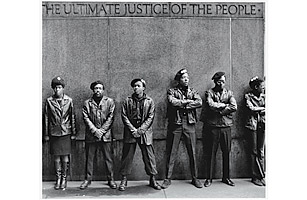
From a legal standpoint, segregation was put to rest in 1964 with the signing of the Civil Rights Act. But centuries of oppression didn't evaporate overnight. Now free from marginalization, African Americans began to stand up for their rights without fear, forming a cultural movement to promote the newfound pride they took in their race. The Black Power movement was a subgroup of the larger strides toward black equality, one that has both been praised for its activism and criticized for its isolationism. Indeed, even the name itself was divisive. While many empowerment groups embraced the phrase black power soon after Stokely Carmichael of the Student Nonviolent Coordinating Committee first uttered it in 1966, others — including, most notably, Martin Luther King Jr.'s Freedom Now movement — refused to adopt the slogan. Undeniably powerful, the phrase and movement behind it helped get African Americans elected to office and admitted to colleges, but it was also criticized for helping launch the Black Panther Party, which justified violence as a means of gaining equality.